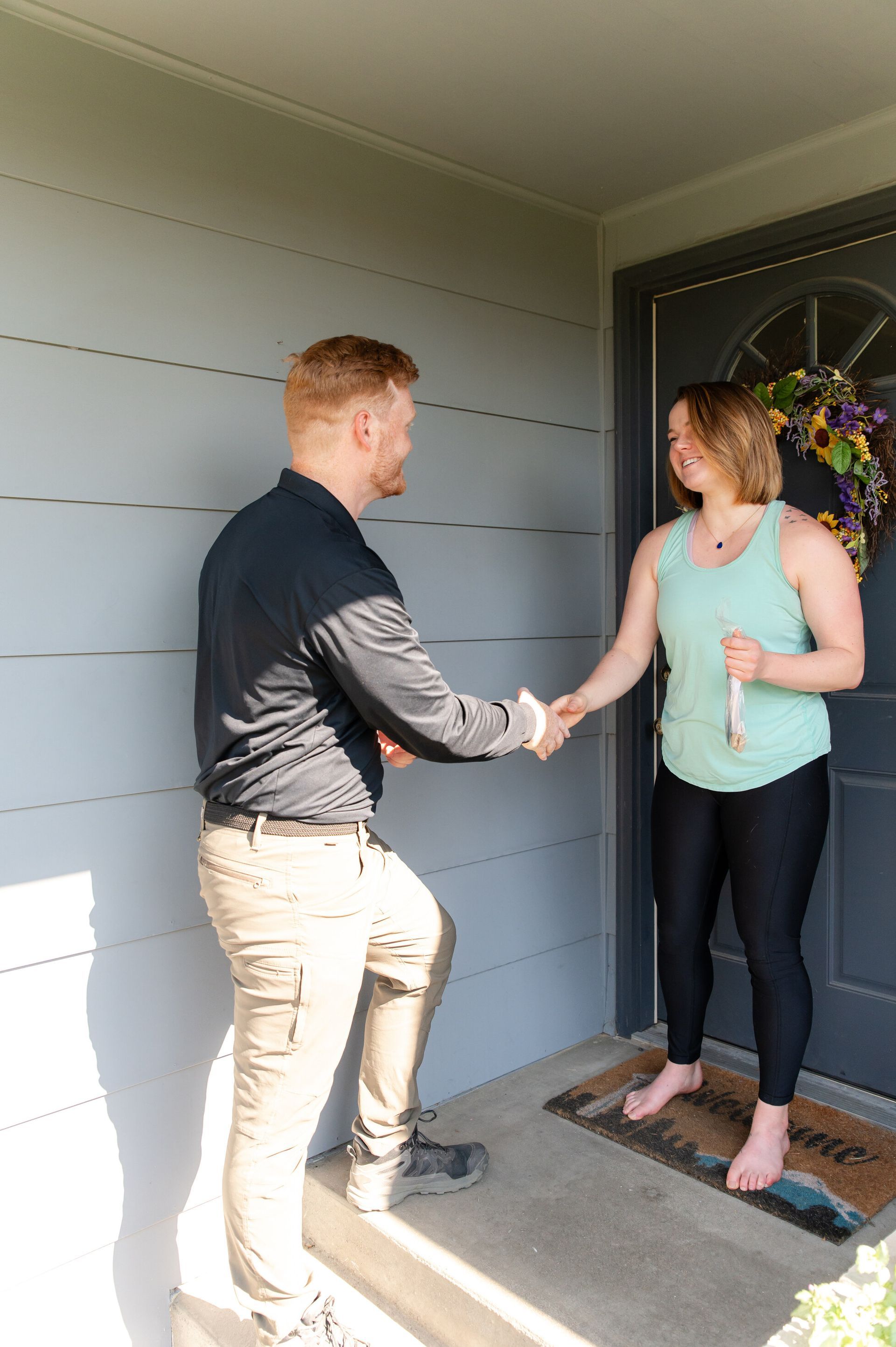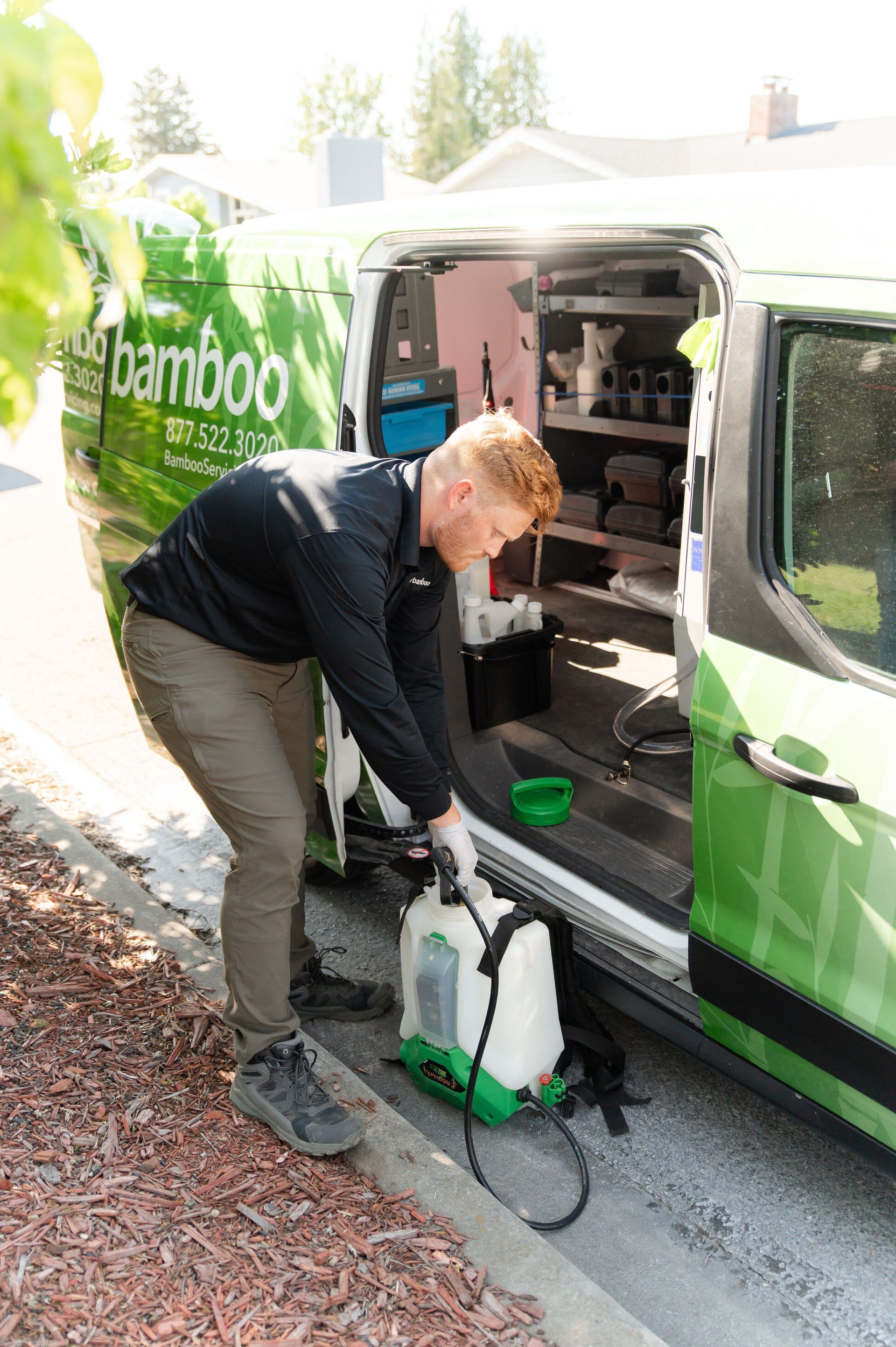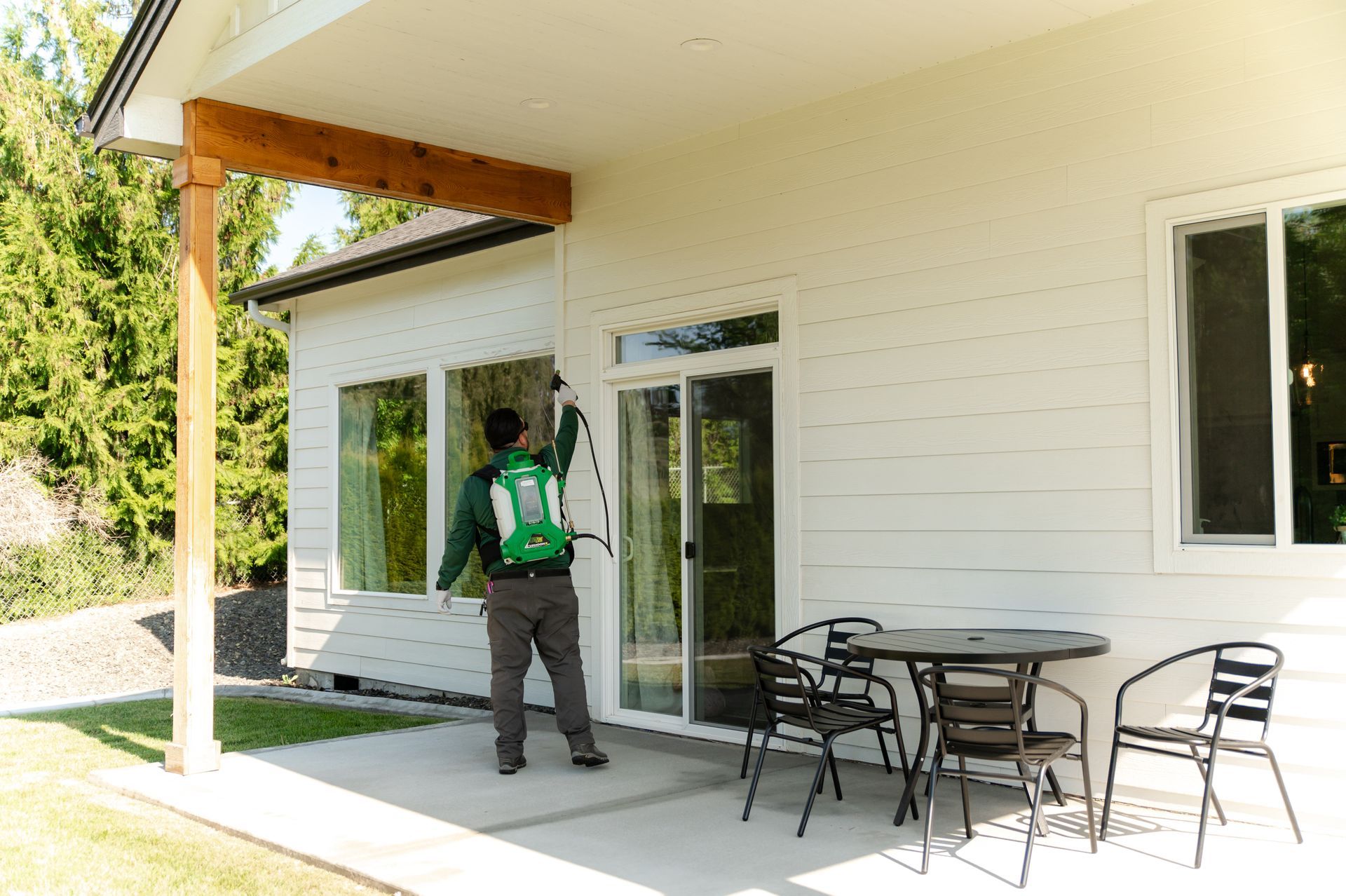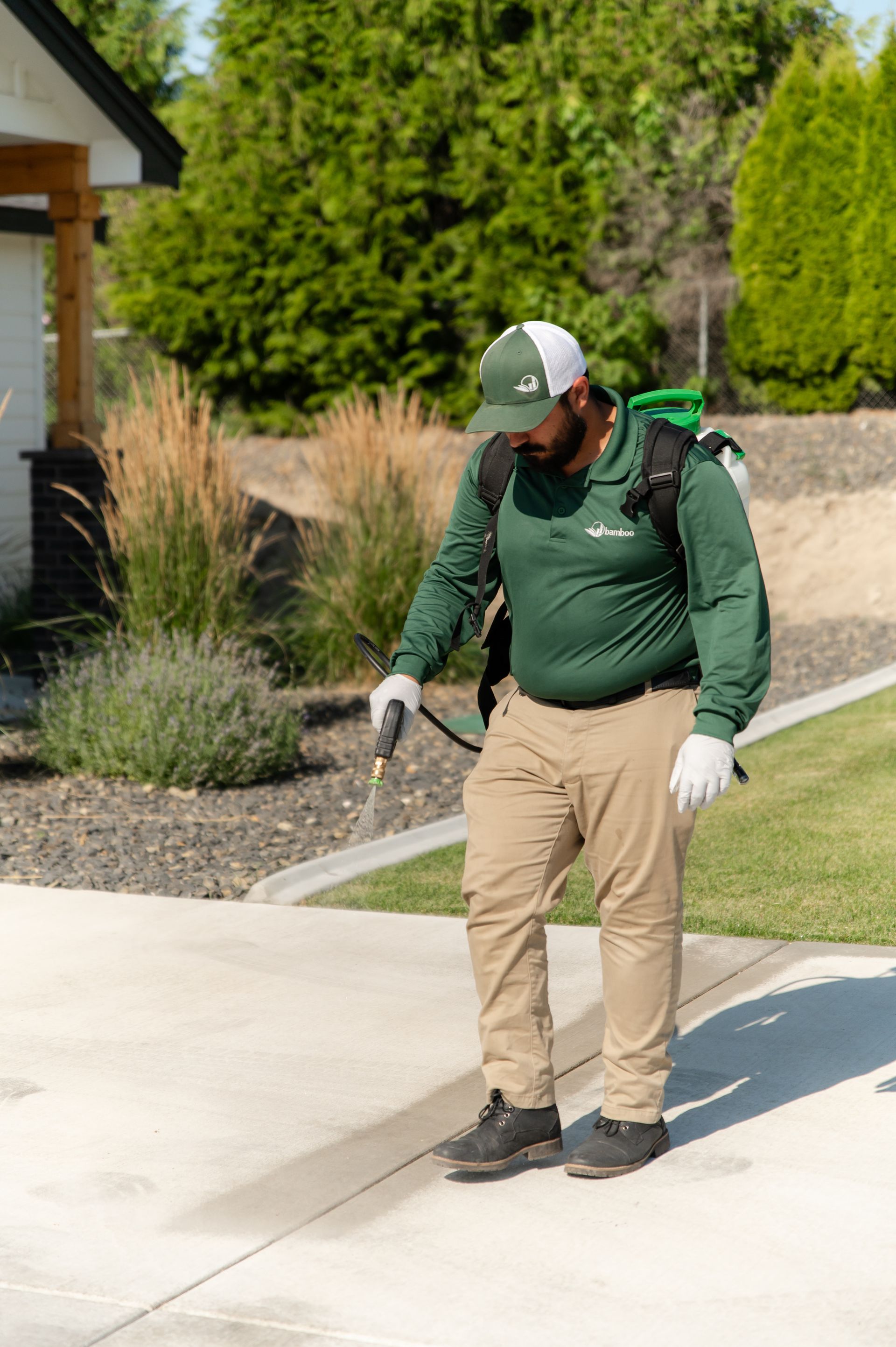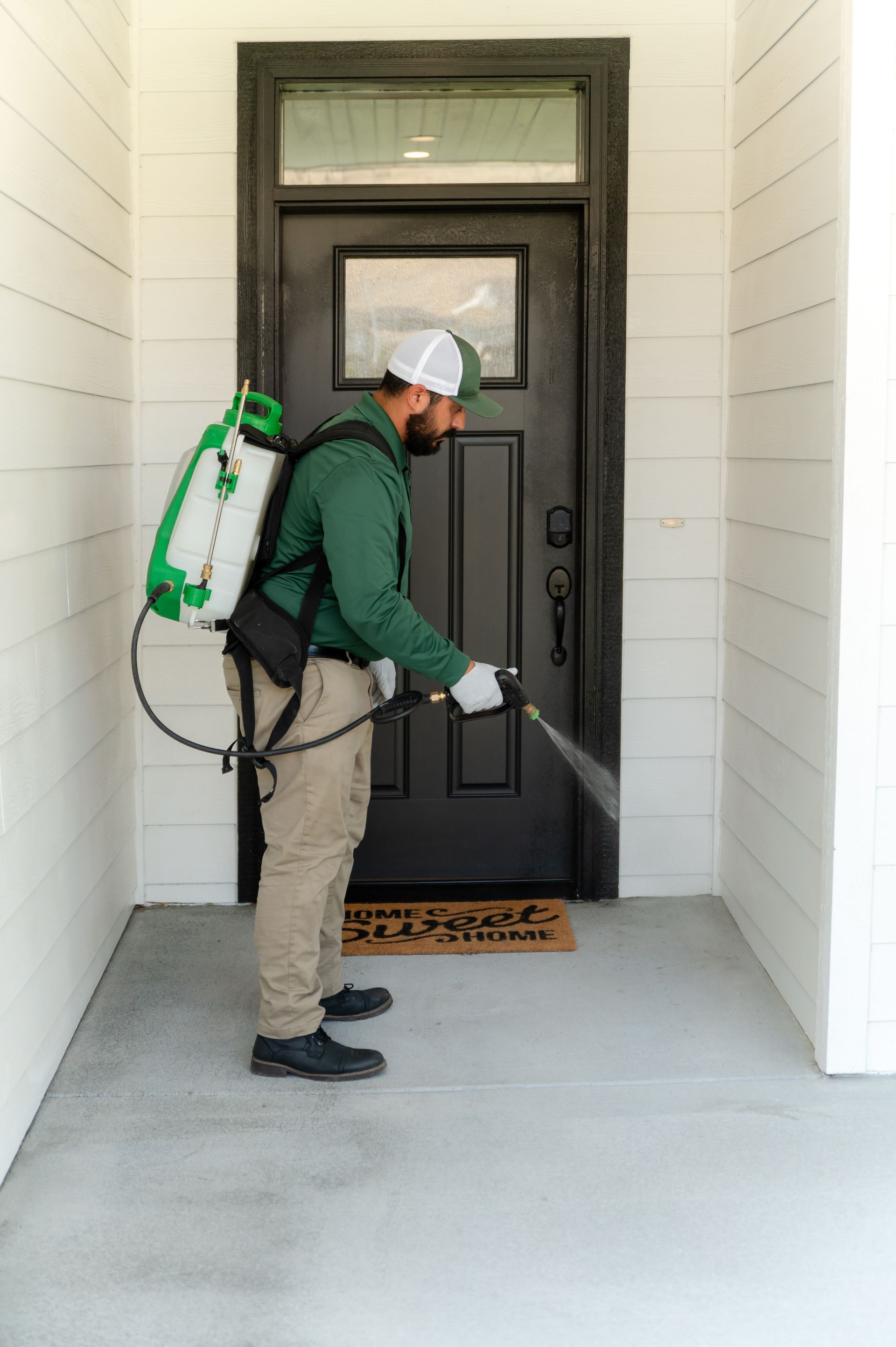Can You Have Pest Control Service While Pregnant?
Safe Pest Control Options for Expectant Mothers
Dealing with invasive pests during your pregnancy can be annoying and frustrating. You want to keep your home free from pests, but you might also be worried about potential risks to your baby. It's natural to have questions about using pest control services while you're expecting.
While some pest control methods can be used safely during pregnancy, it's important to take precautions and consult with professionals. Low exposure from occasional use of household bug sprays is unlikely to pose significant risks, but it's best to minimize contact with all pesticides when possible.
Exploring safer alternatives and understanding the potential impacts of different pest control options can help you make informed decisions. Let's examine the facts about pest control during pregnancy and what steps you can take to protect yourself and your growing baby.
If you happen to need local
pest control in Redmond, please contact us for safe options for pregnant mothers.
Understanding Pesticides and Their Risks During Pregnancy
Pesticides are chemicals used to control pests, weeds, and plant diseases. During pregnancy, you may encounter pesticides in various forms, including insecticides, herbicides, and fungicides.
Exposure to pesticides during pregnancy can potentially affect fetal development. The first trimester, particularly weeks 3-8, is considered a critical period when neural tube development occurs.
Some potential risks associated with pesticide exposure can include:
- Birth defects
- Low birth weight
- Preterm birth
- Developmental delays
It's important to note that the level of risk depends on factors such as:
- Type of pesticide
- Duration of exposure
- Amount of exposure
- Stage of pregnancy
To minimize risks, wash produce thoroughly before consumption and avoid direct contact with pesticides when possible. If you live near agricultural areas, be aware of potential exposure through air or water.
Professional pest control treatments in your home or workplace are generally considered low-risk when performed correctly. However, it's always best to consult with your healthcare provider before any pesticide exposure during pregnancy.
Remember, while caution is necessary, many women have healthy pregnancies despite some level of pesticide exposure. The key is to minimize risks where possible and stay informed about potential hazards.
Choosing Safe Pest Control Methods When Expecting
When pregnant, it's crucial to prioritize safe pest control methods. Natural alternatives can be effective and pose minimal risk to you and your baby.
Take a look at some of these safer options:
- Diatomaceous earth for crawling insects
- Sticky traps for mice and rats
- Ultrasonic repellents for various pests
- Essential oils like peppermint or citrus for natural repellent
If chemical treatments are necessary, opt for low-toxicity products. Always read labels carefully and choose options with the lowest effective concentration.
Timing is critical. Schedule treatments when you can be away from home for at least 24 hours. This allows ample time for ventilation and reduces exposure risk.
Protective measures are essential. Wear gloves, long sleeves, and pants when applying any pest control products. Ensure proper ventilation by opening windows and using fans.
Remember to consult your healthcare provider before using any pest control methods. They can offer personalized advice based on your specific situation and health needs.
By choosing safer methods and taking proper precautions, you can effectively manage pests while protecting your health and your baby's well-being during pregnancy.
Professional Pest Control Services and Pregnancy Safety
Ensuring a pest-free home during pregnancy requires careful consideration of safety measures. Professional pest control services can be utilized safely when proper precautions are taken and open communication is maintained.
Communication With Your Pest Control Provider
When considering pest control while pregnant, inform your pest control professional about your pregnancy. Ask about the specific treatments they plan to use and any potential risks. Request information on the chemicals involved and their safety profiles for pregnant women.
Discuss alternative methods that may be safer for your situation. Many companies now offer green or organic pest control solutions that are less likely to pose risks during pregnancy.
Inquire about the duration of the treatment and how long you should stay away from treated areas. This information will help you plan accordingly and minimize exposure.
Pre-Service Preparations for Pregnant Homeowners
Before the pest control service arrives, take steps to protect yourself and your unborn child:
- Remove all food, utensils, and dishes from areas to be treated
- Cover or remove children's toys and pet items
- Close windows and turn off air conditioning to prevent fumes from circulating
- Arrange to stay elsewhere during the treatment and for the recommended period afterward
Wear protective clothing such as long sleeves, pants, and closed-toe shoes if you need to be present briefly. This reduces the risk of skin contact with any residual chemicals.
Post-Treatment Safety Measures
After the pest control service, follow these guidelines to ensure your safety:
- Wait at least 24 hours before re-entering your home, or longer if advised by the pest control professional
- Ventilate your home thoroughly by opening windows and running fans
- Wipe down all surfaces, especially in food preparation areas, with soap and water
Avoid touching treated surfaces directly. If possible, have a non-pregnant person handle the initial cleaning. Wash any clothing or bedding that may have been exposed to pesticides during the treatment.
Monitor your health closely in the days following treatment. If you experience any unusual symptoms, contact your healthcare provider immediately.
Home Remedies for Pest Control during Pregnancy
During pregnancy, you may want to consider natural pest control methods to avoid potentially harmful chemicals. Here are some safe home remedies you can try:
Vinegar spray: Mix equal parts water and white vinegar in a spray bottle. Use this solution to deter ants and other small insects around your home.
Diatomaceous earth: This natural powder can help control crawling insects. Sprinkle it in areas where you've seen pests, but avoid inhaling it.
Essential oils: Certain scents repel insects naturally. Try using peppermint, lavender, or citrus oils diluted in water as a spray.
Borax and sugar mixture: For ant control, mix equal parts borax and sugar. Place small amounts in areas ants frequent, but keep it out of reach of children and pets.
Herb plants: Growing herbs like basil, mint, or rosemary near windows can help repel flying insects.
Sticky traps: Use non-toxic sticky traps to catch flying insects without chemicals.
Remember to maintain cleanliness in your home, seal entry points, and store food properly to prevent pest infestations. These methods can help you manage pests safely during pregnancy, but consult your healthcare provider if you have concerns.
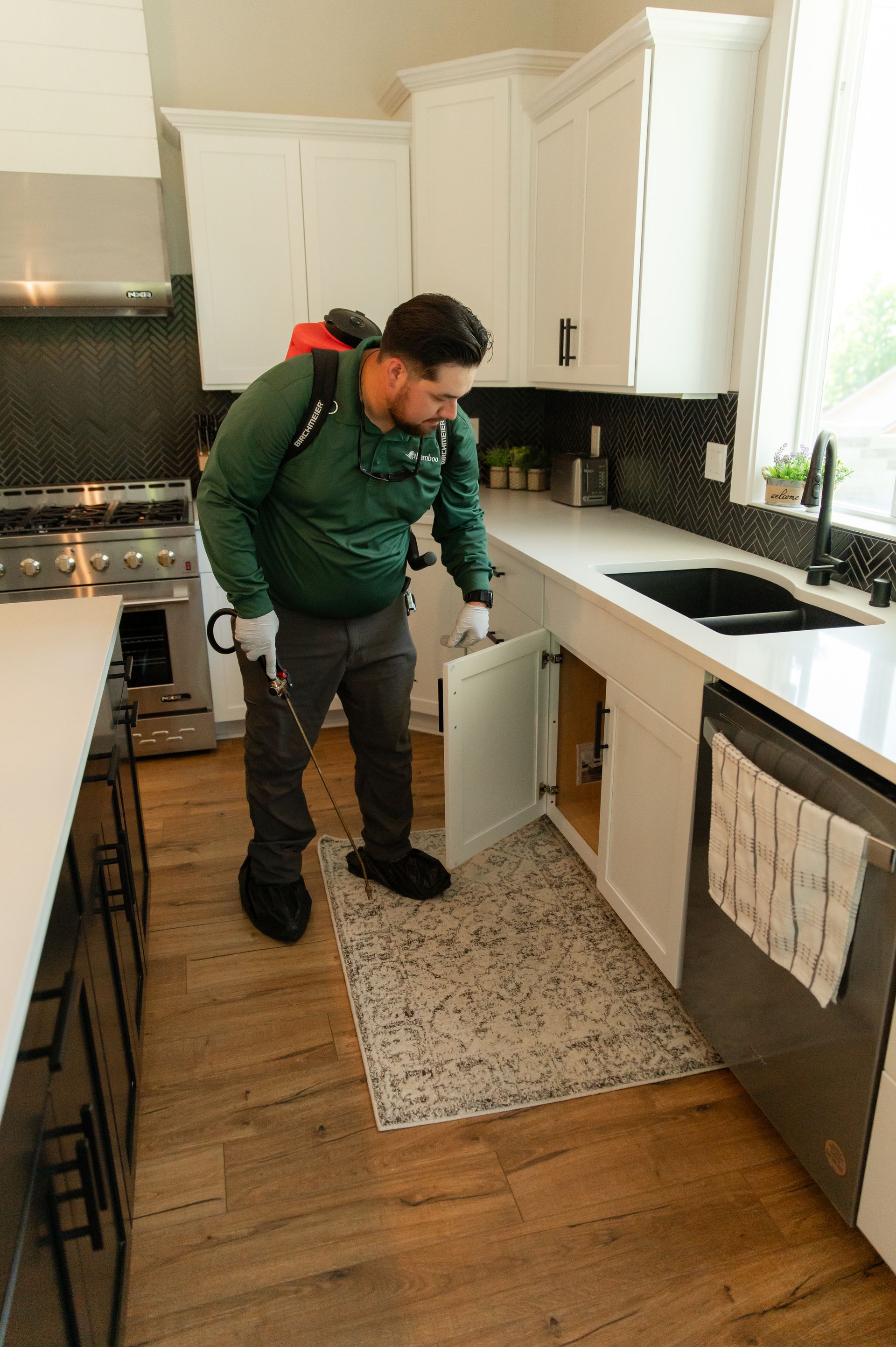
Chemical-Free Pest Deterrence Strategies
Safe pest control methods are essential during pregnancy. Non-toxic approaches can effectively manage pests without risking harm to you or your baby. These strategies focus on prevention and natural repellents.
Physical Barriers and Traps
To keep pests out, seal entry points around your home. Use caulk to fill cracks and gaps in walls, floors, and foundations. Install weatherstripping around doors and windows. Place mesh screens over vents and chimneys to prevent pest intrusions.
Traps are an effective chemical-free option for pest control. Sticky traps work well for insects like ants and roaches. For rodents, consider live traps or snap traps. Place traps in areas where you've noticed pest activity.
Ultrasonic devices emit high-frequency sounds to deter pests. While their effectiveness varies, they're safe to use during pregnancy. Try placing them in problem areas like kitchens or basements.
Natural Repellents
Many natural substances can repel pests without harmful chemicals. Essential oils like peppermint, eucalyptus, and citronella are known to deter various insects. Dilute these oils and apply them around entry points or potential problem areas.
Diatomaceous earth is a natural pest deterrent. This fine powder damages the exoskeletons of insects, effectively controlling populations. Sprinkle it in areas where you've seen pests, but avoid inhaling the dust.
Herbs like basil, mint, and lavender can repel insects when planted around your home. Consider growing these in pots near windows or doors. You can also use dried herbs in sachets placed in closets or drawers to deter moths and other pests.
Assessing Pest Severity and the Need for Intervention
Evaluating the extent of a pest problem is crucial for pregnant women to determine if professional pest control is necessary. Identifying common household pests and recognizing situations that require immediate attention can help you make informed decisions about pest management.
Common Household Pests
When looking in your home at the pest invasion, start by identifying the type of pest you're dealing with. Common household pests include ants, cockroaches, spiders, and rodents.
Look for signs of infestation such as droppings, damaged food packaging, or unusual noises. Count the number of pests you see daily. A few ants in the kitchen may not be cause for alarm, but a trail of dozens indicates a larger problem.
Check potential entry points like cracks in walls, gaps around windows, or holes near pipes. The more access points you find, the more severe the infestation may be.
Consider the pest's breeding cycle. Fast-reproducing pests like fruit flies can quickly escalate from a minor nuisance to a major issue.
Situations That Require Immediate Attention
Certain pest situations demand prompt action, even during pregnancy. Potentially harmful species like black widow spiders or brown recluse spiders pose health risks and require immediate professional intervention.
If you notice signs of rodents, such as droppings or chewed wires, act quickly. Rodents can carry diseases harmful to you and your unborn child.
Large infestations of any pest type, especially those resistant to DIY methods, warrant professional help. If you've tried home remedies without success, it's time to consult an expert.
Pests in food preparation areas or near baby items are particularly concerning. These situations can lead to contamination and health issues for you and your developing baby.
Important Considerations for Pregnant Women
Pregnancy requires extra caution when it comes to pest control. Your developing baby is sensitive to chemicals, so you need to prioritize safety.
Avoiding pesticides during pregnancy is ideal, especially in the first trimester. This is when crucial fetal development occurs.
If pest control is necessary, consider these key points:
- Consult your healthcare provider before any treatments
- Inform the pest control company about your pregnancy
- Choose low-toxicity or natural methods when possible
- Ensure proper ventilation during and after treatment
- Stay away from treated areas for at least 24 hours
Wear protective clothing if you must be near treated areas:
- Long-sleeved shirts
- Long pants
- Gloves
- Closed-toe shoes
Maintain the commonly known good hygiene practices. Wash your hands frequently and avoid touching surfaces in recently treated areas.
Consider Integrated Pest Management (IPM) as a safer alternative. This approach focuses on prevention and non-chemical control methods.
Remember, your health and your baby's well-being are paramount. When in doubt, always err on the side of caution and consult professionals.
Creating a Pest Control Plan During Pregnancy
During pregnancy, it's essential to develop a safe and effective pest control strategy. Avoiding pesticides and insecticides is the safest approach, especially during the first trimester when your baby's neural tube and nervous system are developing.
Consider these alternatives to chemical pesticides:
- Natural repellents (e.g., peppermint oil, vinegar)
- Diatomaceous earth for crawling insects
- Sticky traps for flying pests
- Regular cleaning and decluttering to prevent infestations
If professional pest control is still necessary, choose a highly rated and reputable company that uses pregnancy-safe methods. Discuss your concerns with the technician and ask about low-toxicity or non-chemical options.
Before any treatment:
- Remove all food, dishes, and utensils from the area
- Cover furniture and toys
- Ventilate the space thoroughly afterward
Remember to wash your hands frequently and avoid direct contact with treated areas. If you must handle pest control products, wear gloves and a mask. By taking some of these precautions, you can usually maintain a pest-free home while prioritizing your and your baby's health during pregnancy.
Regulations and Safety Standards for Pesticide Use
Pesticide use is governed by strict regulations and safety standards to protect human health and the environment. These guidelines cover both indoor and outdoor applications, with specific considerations for sensitive populations like pregnant women. EPA Guidelines for Indoor Pesticide Use the Environmental Protection Agency (EPA) provides guidelines for safe pesticide use indoors. When looking into pest control while you are pregnant, you should be aware of these key points:
- Choose low-toxicity products when possible
- Follow label instructions carefully
- Ensure proper ventilation during and after application
- Avoid treated areas for the recommended time period.
The EPA recommends trying non-chemical pest control methods first. If pesticides are necessary, opt for ready-to-use products to minimize exposure risks. Always store pesticides out of reach of children and pets.
State and Local Regulations
In addition to standard federal guidelines, you must comply with state and local regulations for pesticide use. These may include:
- Licensing requirements for professional applicators
- Restrictions on certain pesticide types or application methods
- Notification requirements for neighbors or building occupants
- Specific safety measures for schools, daycares, and healthcare facilities.
Check with your state's pesticide regulatory agency for detailed information on local laws. Some areas may have stricter regulations to protect vulnerable populations, including pregnant women.
When hiring a pest control company, verify they are properly licensed and follow all applicable regulations. Don't hesitate to ask about their safety protocols and the specific products they plan to use in your home.
Consult Your Health Professional About Pest Control Safety
When considering pest control during pregnancy, it's crucial to consult your healthcare provider. Your doctor can offer personalized advice based on your specific health situation and pregnancy stage.
Discuss any existing pest problems and potential treatment options with your healthcare professional. They can help assess the risks and benefits of different pest control methods.
Consulting a healthcare professional is especially important during the first trimester. This period is critical for fetal development, and exposure to certain chemicals may pose higher risks.
Ask your doctor about safe alternatives to chemical pesticides. They might recommend natural or less toxic methods that are suitable for pregnant women.
Your healthcare provider can also advise on precautions to take if pest control is necessary. These may include:
- Leaving the premises during treatment
- Ventilation requirements after treatment
- Safe re-entry times
- Proper cleaning procedures post-treatment
Remember to inform your pest control professional about your pregnancy. They can work with your doctor's recommendations to ensure the safest possible treatment plan.
By involving both your healthcare provider and pest control experts, you can make informed decisions about managing pests while prioritizing your health and that of your unborn child.
Other Pest Articles You Might Enjoy
Does Construction Cause Pests To Be More Active?
Why Do I Suddenly Have Large Flies In My House?
Carpenter Ants vs Termites - What You Need To Know
What NOT To Do After Pest Control Service Spray?
The Top 5 Most Common Questions About Pest Control
Pest Control Service vs an Exterminator - What's The Difference?
How Long After Pest Control Is It Safe for Pets?
Can Pest Control Get Rid of Roaches?



